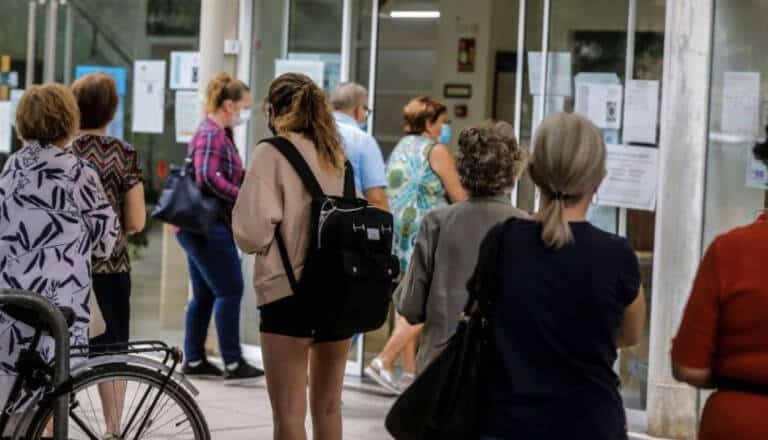A survey carried out by the Organización de Consumidores y Usuarios (OCU) of 981 people over the past year reveals the enormous impact that the pandemic is having on primary care: starting with the long waiting times, passing through the difficulties in being attended face-to-face and ending with the consequences of all this on health.
This neglect was especially manifested in the difficulties in going to the health centre: four out of every six consultations had to be by telephone, and after waiting several days. In fact, the long waiting time is the aspect that generates the greatest dissatisfaction among those surveyed, along with the difficulties in contacting their family doctor.
Consequences? 44% of those surveyed who needed medical attention in primary care affirm that they did not receive it adequately, especially people who suffer from a chronic disease or poor health in general.
Of all of them, 28% consider that it has had a great impact on their health, to the point of them ending up hospitalised or at risk of death, as explained in the February OCU Salud magazine.
This neglect has hampered the satisfaction of those surveyed with the doctor, but even more so with the health centre: 51% of those surveyed are less satisfied with their centre than before the pandemic. Especially Valencians (they give it a score of 4.8 out of 10), Basques (5.1) and Madrid (5.2), compared to the good evaluation of the Castilian from Leon (7.5).
Confidence is maintained
Despite everything, confidence in the public health system is maintained. 48% of those surveyed trust the system when it comes to guaranteeing quality health care that is accessible to the population, especially those over 60 years of age.
Although differences are also observed between autonomous communities: the degree of trust is higher among Basques (7.4 out of 10), Castilian-Leonese (6.8), Castilian-Manchego (6.8) and Catalan (6.8) and a little lower between Andalusians (6.6), Valencians (6.4) and Madrid (6.3).
OCU demands from the central and regional health authorities, a sustained reinforcement of primary health care and its human resources. It is also desirable to reduce the bureaucratic burdens assumed by the doctors themselves and which in this last wave have been revealed as one of the main obstacles to the proper functioning of the consultations.





